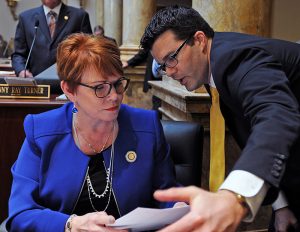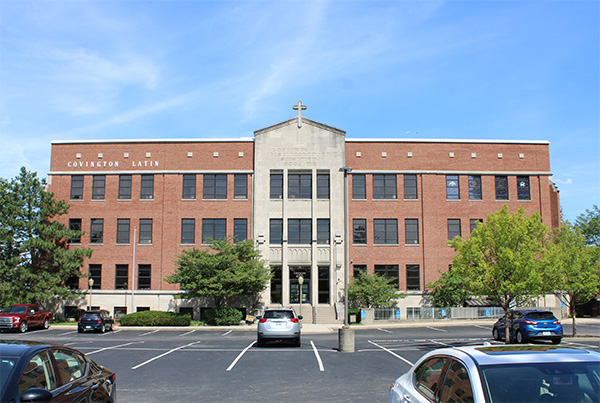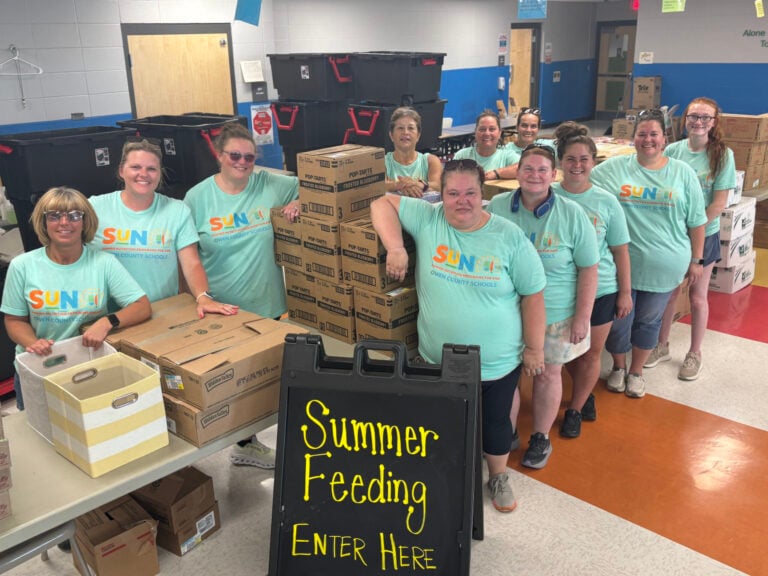Strengthening concussion protocols
The House passed legislation Wednesday to strengthen concussion protocol for student athletes across the Commonwealth. House Bill 241 would disallow coaches from returning a student to play after receiving a concussion diagnosis.
The issue was brought about by recent concerns over student safety in sports, where concussions have been on the rise as of late. For example, many former football players are now being diagnosed with CTE, a degenerative brain disease resulting from multiple hits to the head.
Specifically, the bill prohibits a student from returning to play if no physician, or other licensed provider, is available to conduct a concussion evaluation. Under the measure, a student cannot return to play in any subsequent practice or game unless he or she receives said evaluation.

HB 241 passed the House unanimously, a testament to the strong, bipartisan nature of the legislation. In doing so, the House demonstrated its commitment to the health and safety of the next generation of Kentuckians.
The measure will now move to the Senate for approval.
House Passes Bill to Encourage Food Donations
The House passed a bill to encourage food providers to donate more food without fear of legal prosecution. House Bill 237, sponsored by Rep. Phillip Pratt, R-Georgetown, will strengthen Kentucky’s immunity shield for food donations. The goal of the legislation is to encourage food providers to donate more food without fear of legal prosecution by requiring individuals who claim to have been harmed by consuming donated food to show that the donating entity committed intentional misconduct.
“This bill protects people and their businesses who try to donate food from the goodness of their heart,” said Rep. Pratt. “A person or store should not face criminal charges for trying to do the right thing.”
Rep. Pratt’s bill is in response to Kentucky’s grocery stores throwing away thousands of pounds of food every year instead of donating the food. These stores have even gone as far the locking their waste disposals out of fear of someone eating the food and suing the store for personal injury.
Department of Agriculture Commissioner Ryan Quarles thanked Rep. Pratt for his hard work on this legislation and added, “This adds protections for businesses and individuals who donate foods to nonprofit organizations for Kentucky’s hungry. This legislation is a product of the Kentucky Hunger Initiative that we launched last spring, and it would give Kentucky one of the strongest laws on charitable giving in the nation. I look forward to working with the Senate on passage of this legislation, which will make healthy, nutritious foods available to our friends and neighbors in need.”
The measure passed the House in bipartisan fashion, and now heads to the Senate for consideration where, if passed, will be sent to Gov. Matt Bevin to be signed into law.
House votes to give landlords relief under state dog bite law
Landlords now held liable when a tenant’s dog bites someone would receive some relief under a bill that advanced today in the Kentucky House.
House Bill 112, sponsored by Rep. Stan Lee, R-Lexington, would effectively remove landlords from liability for their tenants’ dogs under the state’s dog bite laws by redefining a dog owner as someone who both keeps and cares for a dog on property that the person both occupies and owns or leases. Current law does not specifically include tenants under the definition of dog owner.
Lee said the bill, which passed the House by a vote of 87-9, would give landlords the same protection they enjoyed under Kentucky’s dog bite laws prior to 2012 when the Kentucky Supreme Court ruled in the case of Benningfield v. Zinsmeister. The landlord in that case was found responsible “despite the fact that landlord had made an effort to go to his leased tenant and say ‘please remove that dog,’” said Lee.
Rep. Jeff Greer, D-Brandenburg, an insurance agent, said he supports HB 112. Greer said he has had clients who own rental property struggle with the current law even in cases where tenants agreed in writing that they would not have a dog.
“If they get a dog later, what bothers me is my insureds … are held accountable. I don’t think that’s fair,” he said.
Among those voting against the bill was Rep. Angie Hatton, D-Whitesburg. Hatton said there is no protection for dog bite victims under the legislation.
“If six pit bulls were trained to kill and let run loose by a tenant, there’s no liability. There’s no protection under this legislation for any person who’s injured by a dog…” she said.
HB 112 now goes to the Senate for its consideration.
House Passes Bill to Better Solid Waste Management in Jefferson County
The Kentucky House of Representatives passed a bill to amend state law to ensure the Louisville Metro Solid Waste Ordinance accurately serves the citizens of Jefferson County by including not only Louisville Metro Government, but also the 82 smaller surrounding cities where 20 percent of county residents reside.
House Bill 246, championed by Rep. Jerry T. Miller, R-Eastwood, addresses the makeup of the Louisville Metro Solid Waste Ordinance, which was established well before the City of Louisville merged with Jefferson County.
“The passage of this measure ensures that the interests of all citizens of Jefferson County are respected,” said Rep. Jerry T. Miller, a former metro council member. “This is not a Frankfort vs. Louisville issue; rather it is about ensuring the Louisville Solid Waste Management Board respects everyone impacted by their decisions.”
“Simply put, the current solid waste management ordinance is out of date and no longer able to successfully serve the residents affected by its actions,” added Rep. Miller. “A solid waste management plan is due to the state by the end of 2017, and swift passage of this bill will enable the board ample time to ensure compliance with all state and federal laws.”
The bill will now go to the Senate for consideration.
House Passes Bill to Address KDVA Staffing Challenges; Fulfill Mission to Serve Kentucky Veterans
The House passed House Bill 311 to address staffing challenges for the Kentucky Department of Veterans Affairs (KDVA). Sponsored by Rep. Tim Moore, R-Elizabethtown, the measure will equip KDVA to fulfill their mission of serving Kentucky’s veterans.
“KDVA is committed to a powerful mission in serving our state’s veterans,” said Rep. Tim Moore, a Colonel in the United States Air Force. “The brave men and women who so selflessly served our nation deserve the best care available, and burdensome laws should not stand in the way of that. I commend the House for swiftly passing this measure.”
House Bill 311 will permit KDVA to hire licensed nurses on a personal service contract, allowing for wages to be competitive with the private sector. KDVA’s inability to offer a competitive wage has led to a large number of nursing vacancies for their facilities across the state, preventing them from serving as many Kentucky veterans as possible through the state’s network of veterans’ nursing homes.
Rep. Moore filed this legislation in response to the KDVA’s testimony on staffing challenges in the House Veterans, Military Affairs, and Public Protection Committee in early February.
The measure passed the House 96-2, and now heads to the Senate for consideration. If passed, it will be sent to the governor to be signed into law.
House Passes Bill to Ease Transportation of Large Farm Equipment
The House passed a measure that will ease the transportation of farm equipment in Kentucky. House Bill 265, which is sponsored by Rep. Walker Thomas, R-Hopkinsville, would save farmers and farm equipment implementers both time and money when moving large pieces of farm equipment.
“House Bill 265 is a vital measure to ensure the safety of our agricultural community,” said Thomas. “This measure will increase road safety by minimizing additional trips needed for our farmers and equipment implementers, while reducing the risk of accident from technicians who are removing and reinstalling farm equipment. I commend the House for swiftly passing this legislation.”
Currently, when large pieces of equipment are transported, such as tractors, outer wheels must be removed from the axels and transported separately as they are not exempt under Kentucky’s non-divisible load laws. House Bill 265 specifically expands the definition of non-divisible load, allowing farmers to transport their items without the additional equipment currently needed to reassemble.
The measure passed the House 95-2.
Ridley’s highway safety bill heads to House
A highway safety bill, sponsored by Sen. Dorsey Ridley, D-Henderson, passed out of the Senate.
“Citizens and law enforcement folks have complained to me about the super bright lighting on some vehicles and how distracting it is,” said Ridley, a member of the Senate Transportation Committee. “This distraction presents a real danger for drivers.”
Ridley’s solution comes in the form of Senate Bill 92 that would restrict modifications of vehicles with certain replacement headlights and other lights that emit from beneath the vehicle.
“It is becoming a real safety issue and would be an addition to the road safety laws already on the books,” added Ridley.
SB 92 would not affect the original equipment installed on cars and trucks by the manufacturer, but would only affect equipment or lighting added after the vehicle rolls off the assembly line, he noted.
SB 92 would prohibit vehicles from:
• Emitting anything other than white light,
• Require all headlamps to meet US Department of Transportation regulations,
• Prohibit headlamps that appear to emit a solid color other than white,
• Prohibit headlamp covers or film that changes the color of the light emitted, and
• Outline provisions for front, rear, side and undercarriage lighting of a vehicle.
• Exempt original equipment installed by the manufacturer.
SB 92 now moves to the House of Representatives for further action.
From LRC Public Information

















